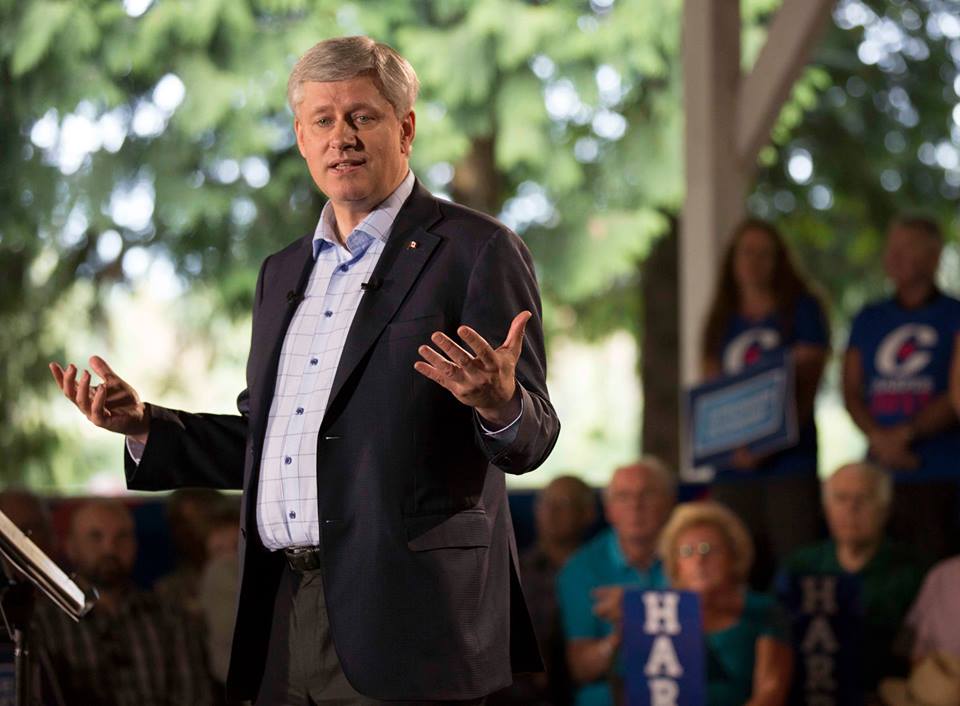Breaking
Harper’s legacy: smaller government, unified party, targeted benefits
OTTAWA — On election night 2006, Stephen Harper walked out in front of a room full of supporters and smiled at the country that had just voted for change.
The incoming prime minister told the crowd that the party would clean up Ottawa with the Accountability Act. They would cut the GST to five per cent. And the Conservatives would scrap the Liberal child care program and give money directly to parents.
He spoke of the big picture, saying the Canadian identity was not forged by government policy, nor did it flow from any one party or leader.
“The result tonight signals a change of government, not a change of country,” Harper said in his victory speech.
Yet after nine years in office, much has changed.
The federal government, in particular, has shrunk.
Taxes, such as the GST, have gone down and the tax code is sprinkled with tax credits.
The federal government has become less active in the daily lives of Canadians, with direct benefits replacing big government programs, for instance.
On the benefit front, the Conservative approach has become convention. Today’s Liberals promised a new child benefit of their own to replace the existing universal program. And the other parties have started to understand how to target pocketbook issues during elections that Harper used so effectively — and that voters are now acutely aware of.
“You can take it as a recognition of clarity of leadership and purpose when the other parties call for similar policies or small incremental change,” said Tim Hudak, the former leader of the Ontario Progressive Conservatives.
There is also one clear change that Harper has left on the political map:a unified Conservative party with a track record that spans a decade.
Observers say his efforts have inched federal politics to the right — although not as radically as some think, said Richard Nimijean, who teaches Canadian studies at Carleton University in Ottawa. Harper, he said, continued a path of slashing federal spending and tax cuts that started in the 1990s under the Liberal government of Jean Chretien.
The provinces have become bigger spenders, with provinces like Ontario still running deficits as the tax burden has shifted.
Moving the federal government back into a more activist role won’t be easy because the money to pay for new programs has to come from somewhere, said David McGrane, an associate professor of political studies at the University of Saskatchewan.
Cutting the GST by two points eliminated about $14 billion in annual government revenues. No government will want to increase the GST to pad the bottom line, McGrane said.
“That’s the largest thing that Stephen Harper has changed in Canada: just shrinking the size of government and doing so by reducing the tax base,” McGrane said.
(The Liberals instead have vowed to run deficits and raise taxes on the wealthiest Canadians; they still plan to lower taxes on small businesses as the Conservatives planned, and cut employment insurance rates, but not as much as Harper proposed.)
His crime agenda, embedded in legislation, won’t be easily undone, even as the courts acted as a check on government power. Calls for Senate reform, which Harper once championed, grew louder as the upper chamber was engulfed in a spending scandal sparked by Harper appointees.
He recognized Quebec as a distinct society –looking to eliminate separatist sentiment in the province — and apologized to the survivors of residential schools, even though his government’s relationship with First Nations was problematic.
The residential school apology and the Truth and Reconciliation commission, combined with general prudence on spending and heavily investing to stabilize the economy during the recession six years ago will “all stand the recollection of this government well,” said Hugh Segal, a former Conservative senator.
There were also mistakes during Harper’s time in office, Segal said, pointing to anti-labour legislation and the cancellation of the long-form census.
“But governing for 10 years is a rare privilege, and Conservatives have no reason to be bitter,” Segal said. “Conservatives need to be thankful, respectful of the voters’ choice and reflect on how to regain the broad moderate centre clearly deserted in this campaign.”






















